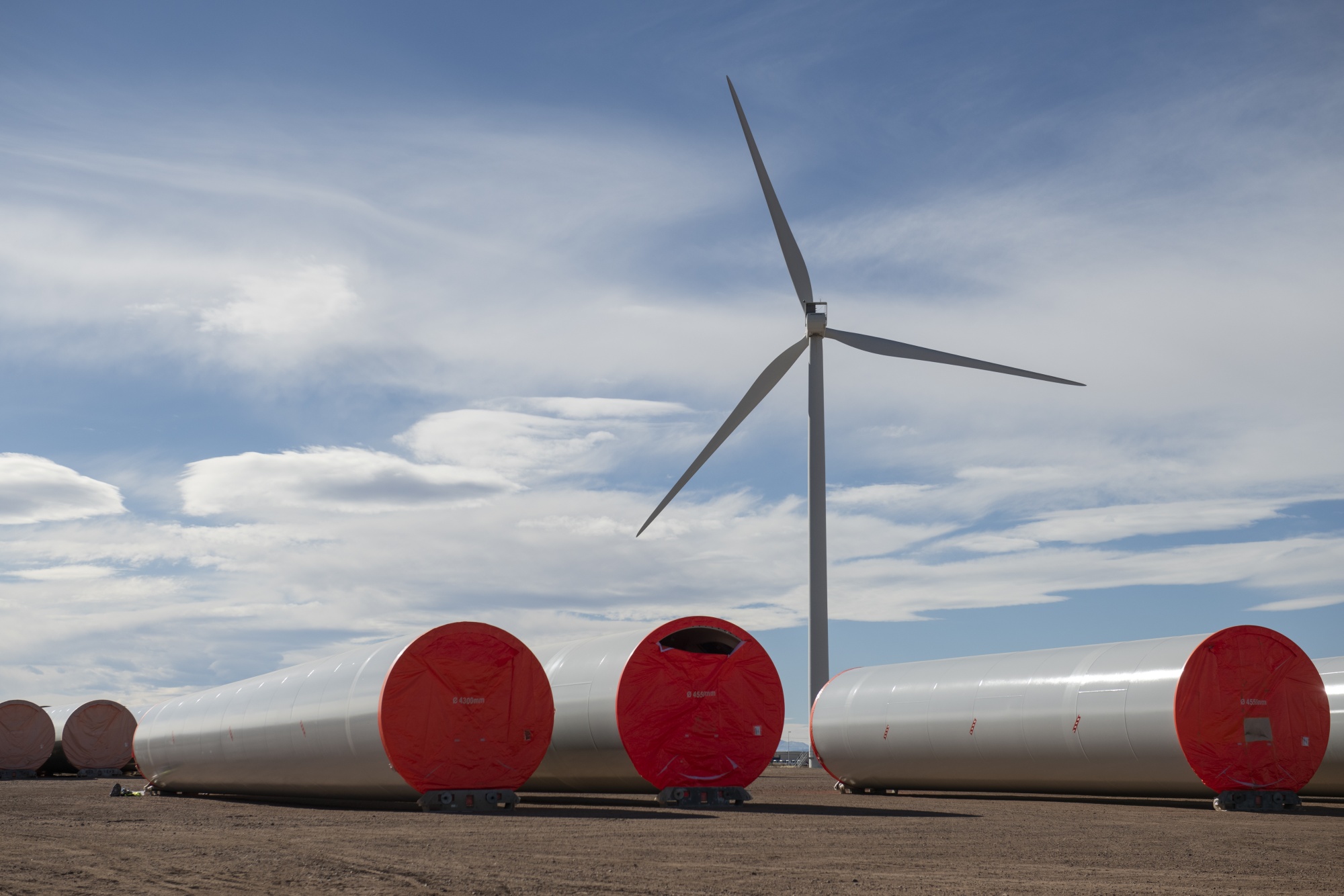Solar, Wind Industries See Existential Threat in Senate Tax Bill
(Bloomberg) -- As Senate Republicans debate President Donald Trump’s tax and spending bill, renewable energy companies are reeling at what looks like a worst-case scenario for the industry.
The latest version of the Senate bill includes a new excise tax on wind and solar projects with certain Chinese components, a late addition that stunned renewable advocates. Given China’s dominance of the solar supply chain, developers would struggle to find ample equipment, including wafers, from other countries.

The bill would also roll back clean energy tax credits sooner than the House version of the package. It would require wind and solar projects to be fully operational by the end of 2027 to qualify for incentives. Many observers had expected the Senate to ease the phaseout — not accelerate it.
The moves by the Senate, as it seeks to cut spending to offset trillions of dollars in tax cuts, “came out of left field” and shocked the industry, according to Ben King, an associate director with research group Rhodium Group’s Energy & Climate practice.
If passed in its current form, the “One Big, Beautiful Bill” would threaten billions of dollars of investments, hobbling energy development at a time of skyrocketing power demand. It would also risk causing household energy bills to spike higher.
“The willingness of the Senate to suggest policy changes that will dramatically increase cost of energy to their consumers and sacrifice significant job growth is very surprising,” said Jason Grumet, chief executive officer of the American Clean Power Association, or ACP, an industry trade group. “It suggests that the effort to repolarize this debate is now taking precedence over their actual constituent interests.”
Republican Senators Joni Ernst and Chuck Grassley of Iowa, along with Lisa Murkowski of Alaska, worked Monday to advance an amendment to soften the clean electricity tax credit phaseout and jettison the proposed excise tax. The tax is “unprecedented,” and “the extremity of the proposal may motivate key Senators to support excise tax repeal,” analysts for research provider Capstone LLC wrote in a note Monday.
ACP estimates the new tax would raise costs on American clean energy companies by $4 billion to $7 billion in the next 10 years, while Rhodium projects it will result in a 10% to 20% increase in the cost of building wind and solar.
That cost increase would “drive down deployment” and, for some new solar and wind facilities that would otherwise be economically competitive with natural gas, push them “out of the sweet spot,” said King. Because this kind of policy has never been implemented before, the uncertainty it introduces would have a “chilling effect” on investment in renewables, he added.
The current proposal would also prevent 300 gigawatts of wind and solar — on par with the output of 300 nuclear reactors — from being brought online within the next 15 years, ACP estimates, which Grumet called a “dramatic interruption” of bringing power to the grid as demand soars. Natural gas couldn’t easily fill the gap, due to a shortage of turbines, while nuclear power plants take years to bring online.
Industry wasn’t alone in its dismay over the changes. On his platform X, Elon Musk called the bill “political suicide for the Republican Party” and “utterly insane and destructive” in its impact on energy. Labor groups assailed the potential for job losses, with North America’s Building Trades Unions President Sean McGarvey calling the legislation “the biggest job-killing bill in the history of this country.”
“The president has demanded that renewable energy credits for wind and solar be terminated as soon as humanly possible, and the Senate bill meets that request," White House spokeswoman Abigail Jackson said in an email.
Asked earlier Monday to respond to an allegation the excise tax would be tantamount to terminating more than a thousand Keystone XL pipeline projects, White House spokeswoman Karoline Leavitt said the president understands “legislators want to protect jobs in their communities and in their districts, and so he understands why some of them are against this provision, but he also understands why people want the provision.”
The Trump administration has made a concerted push to shift federal policy to favor fossil fuels over renewables. Agencies have moved to strip $3.7 billion in loan support for low- and zero-emission power projects and unexpectedly paused construction of an offshore wind farm for weeks, both unprecedented moves. But the clean energy incentives in the Inflation Reduction Act have spurred investment predominantly in red states and districts, giving some congressional Republicans reason to think twice about nixing them.
As lawmakers debate the bill, one thing is clear: Its current iteration would “signal a real step back” on the energy transition, according to Rhodium’s King. “Decarbonization effectively flatlines from where we are today,” he said.
(Updates with additional White House comment in 12th paragraph.)
©2025 Bloomberg L.P.





